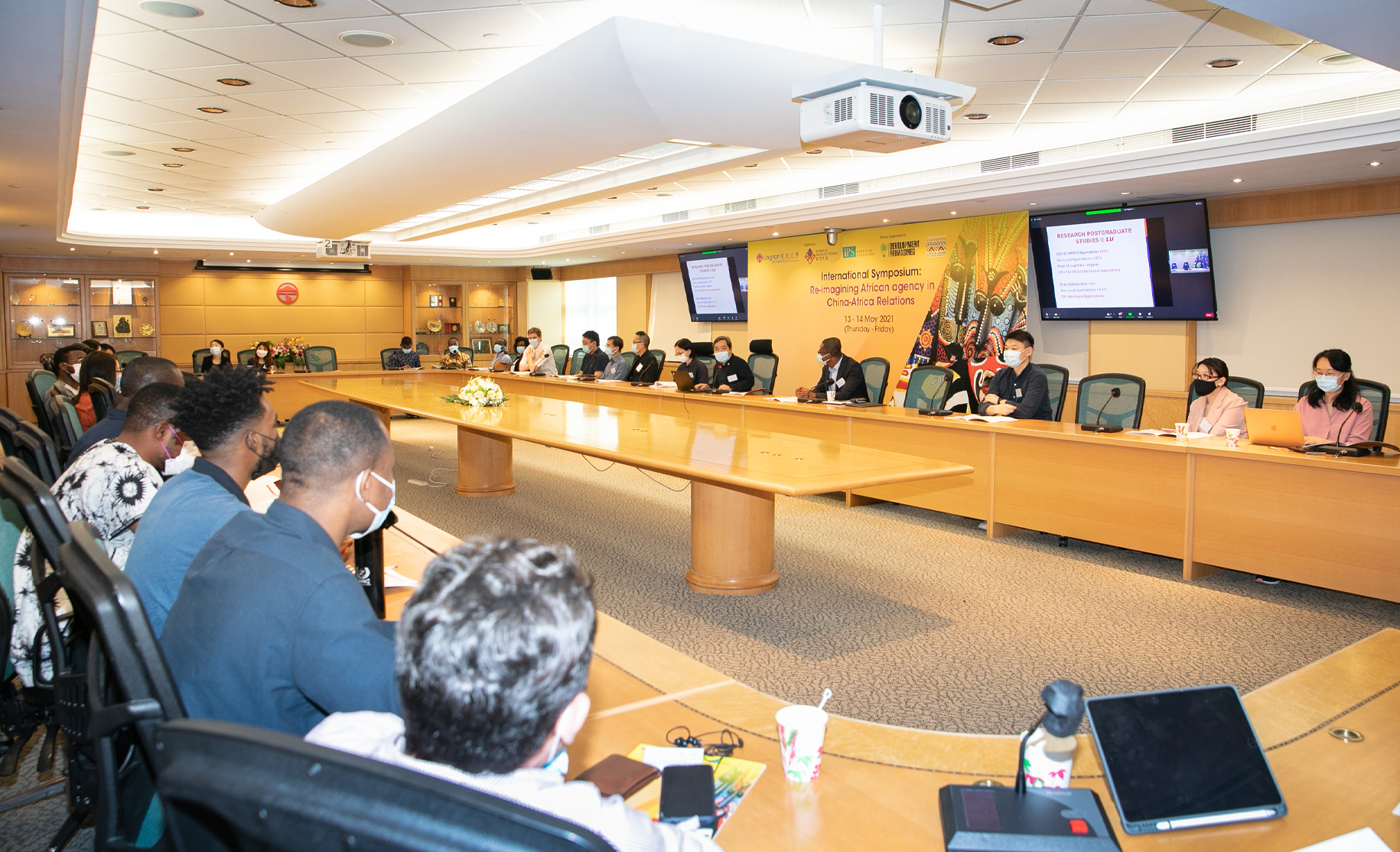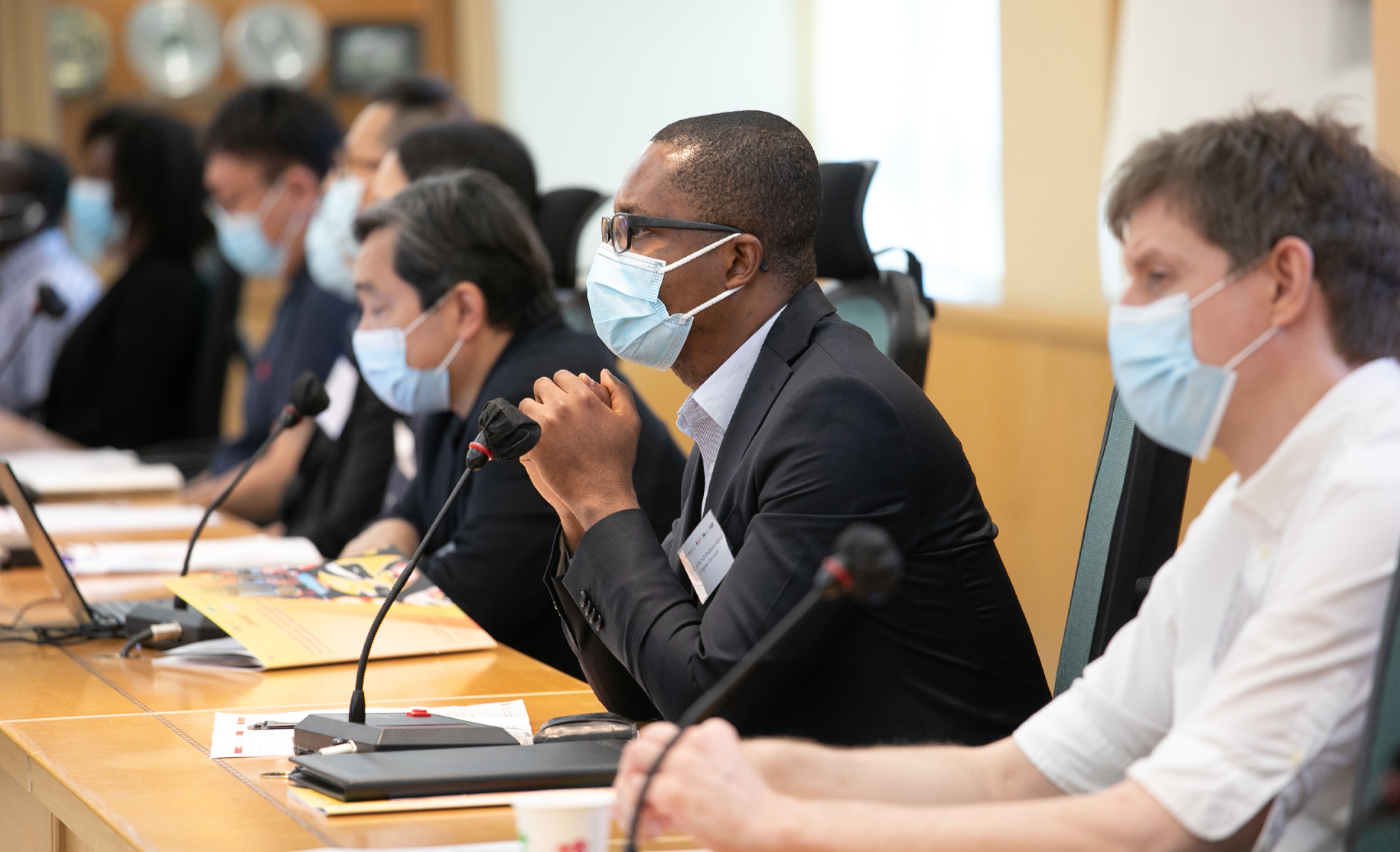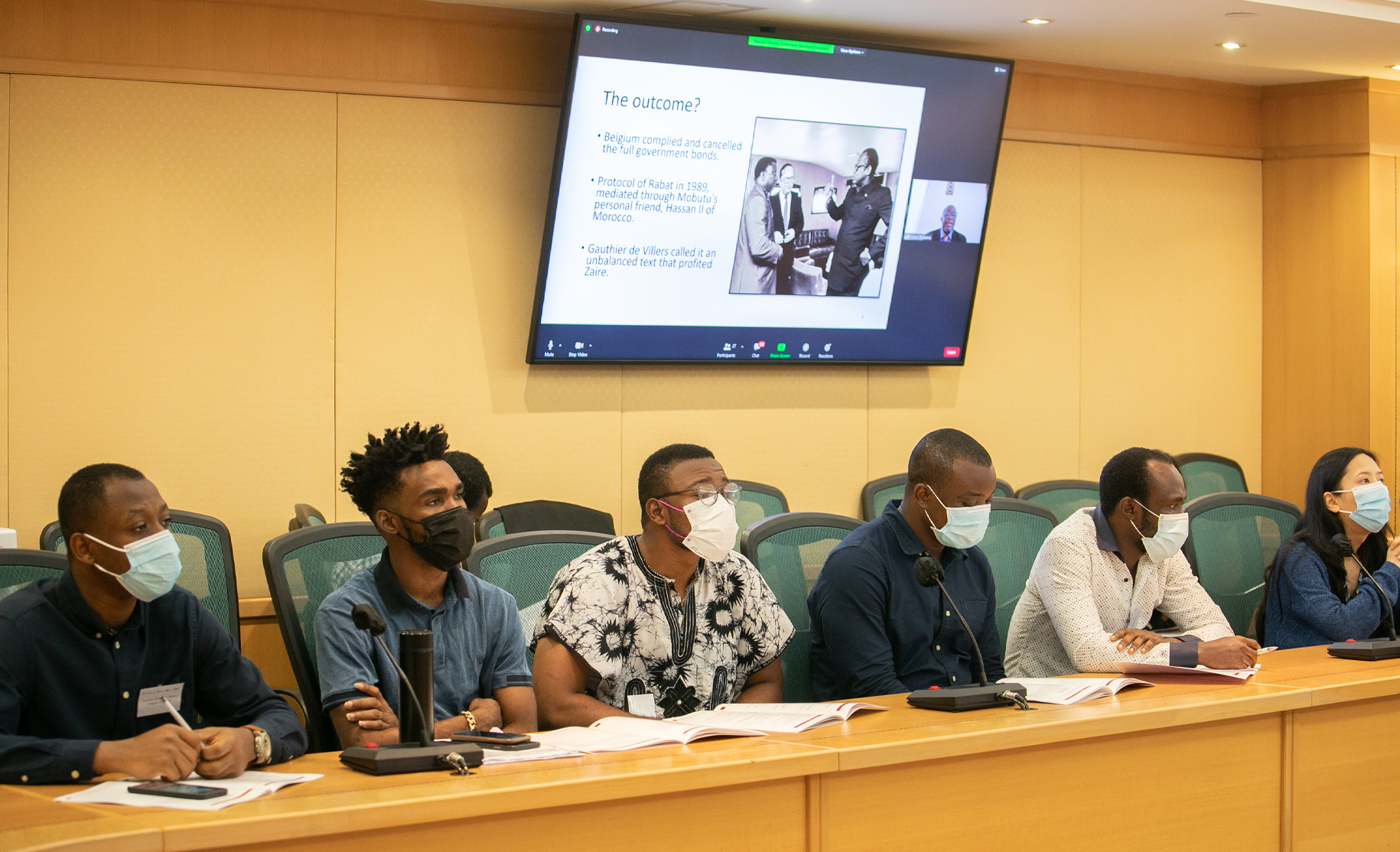
China is now Africa's largest trading partner and a major contributor to the United Nation's peacekeeping personnel on the continent. Given China's growing economic strength and global influence, discussions have centred on China's pursuit of its interests in Africa. But neither China nor the African nations say they want this relationship to be driven by one side only.
With this in mind, the International Symposium: Re-imagining African agency in China-Africa Relations, hosted by Lingnan University’s School of Graduate hosted and organised in partnership with Development Reimagined and Africa-China Research Network, was held on May 13 and 14. The event focused primarily on presentations of papers on key aspects of Africa-China relations.
Proceedings began with a welcoming message from Professor Joshua Ka Ho Mok, Vice President and Dean of Graduate Studies, Lingnan University, in which he noted the symposium’s global reach."We have 17 speakers from eight countries and regions - from the UK, US, Hong Kong, Mainland China, Ghana, Finland, Singapore and Austria."
Prof Mok pointed out that the QS Asia University Rankings 2021 ranked Lingnan University first in terms of internalisation. This ethos was reflected in the 2020/21 figures for applications to Lingnan’s postgraduate programmes, with over 90 percent of them coming from students hailing from 30 countries and regions beyond Hong Kong.
Therefore, as a university with such a global perspective and a recognised enthusiasm for international collaboration, Lingnan made a fitting host for this symposium and this discussion.
Africans’ agency and their future within China

The two presentations in first session of the symposium acknowledged both the proven resilience of the African diaspora and the obstacles to its successful future within China.
Professor Adams Bodomo from the Department of African Studies at the University of Vienna, spoke on the theme of Resilient Bridging: Explaining African Diaspora Agency in China and Beyond.
Countering a narrative of passiveness in post-colonial Africa, Prof Bodomo pointed to the actions taken by President Mobutu of Zaire in the 1980s to persuade Belgium, in the first instance, to cancel his countriy’s debts. He also highlighted South African corporation SAB Miller as an example of African business succeeding in China."A lot of small scale African businesses are doing very well in Guangzhou," he added.
Prof Bodomo accepted that not every migrant builds a successful life for themselves in their host country."But migrant and diasporic populations are often more resilient than host populations."
This is not because of distinctive inherent quality, he said, but because resilience develops in relative adversity. Migrants have fewer opportunities to access the resources of the community, they have fewer support networks and they face other barriers to success, such as language challenges and racial discrimination
But that resilience has being tested in China, and in Guangdong in particular, during the pandemic. In his contribution to the symposium, Professor Roberto Carlos Castillo from Lingnan’s Department of Cultural Studies, began by recalling the what have become known as the Guangzhou incidents. During the early stages of the pandemic, social media footage from the city showed black people being racially profiled, forcibly evicted from their homes and denied entrance into commercial venues.
Prof Castillo said it was highly likely China, and the Guangdong province in particular, will become even less welcoming to African migrants as the immediate threat of COVID-19 recedes. Continuing anxieties about health issues and the demands placed on public services, coupled with the growing use of surveillance tech, and the types of control procedures already experienced by China’s internal migrants, will all play their part."There will be little or no room for the irregular forms of migration, mobility and abode that have made possible the existence of a thriving community from Africa in the Pearl River Delta region."
China’s impact on Africa’s long-term economic development

The first session of the symposium’s second day began with Professor Ana Cristina Alves of Nanyang Technological University outlining her research on the East Industrial Zone in Ethiopia and, in particular, on the zone’s star performer, the Huajian shoe factory.
Prof Alves said that, though positive, the impact of knowledge transfer from the Chinese business was mostly felt at the factory-floor level, with the transfer of some soft and machine operation skills resulting in an increase in output. “At the upper (management) levels the training of locals has been very limited,” she said.
The possibility of a greater impact was constrained by communication issues and high labour turnover, Prof Alves explained. Though this was a common phenomena in agrarian societies as they transitioned to an industrial stage, she said both the African and Chinese sides of the relationship needed to exert more agency to hasten the development process.
Next, Professor Motolani Agbebi of the Faculty of Management and Business in Finland’s Tampere University, assessed the human capital development (HCD) implications of China-Africa economic engagement.
As well as drawing on existing studies, Prof Agbebi has conducted field research in Nigeria. She explained that the Chinese telecoms corporation Hauwei began its successful operations there in 1999. The availability of skilled local workers in Nigeria probably encouraged an active localisation strategy, and the need to keep workers up to date with advances in technology necessitated regular training programmes.
But there are broader lessons to learn from the Nigeria/Huawei example, Prof Agbebi said. “African agency can be deployed to leverage Chinese investments for HCD in Africa.”
Host governments can regulate the use of expat labour, require local content and support for domestic educational policies, and encourage the development of strong labour institutions.
In the final section of this session, Professor Ding Fei, of Arizona State University’s School of Geographical Sciences and Urban Planning, reported on her fieldwork with Chinese construction and telecom companies operating in Ethiopia.
Most of the semi- or unskilled-workers employed by the Chinese construction business were Ethiopian, she noted, and they experienced “a regime of cautious precarity”.
Even among the better educated and skilled local employees in the telecoms company, Prof Ding found limited empowerment, due to language constraints and competition from Chinese colleagues. Efforts to organise for formal collective negotiation had failed and there was an onus on workers to drive their own education and skills development.
“To emplace labour agency in Africa-China Studies means recognising workers are pro-active socio-economic actors who can take the employment opportunities in Chinese companies to fulfill their social and economic interests,” she concluded.
The future of the relationship between Africa and China

The last session of the event began with Patrick Anam, trade advisor with the Beijing-based Development Reimagined consultancy, setting out his organisation’s blueprint for a post-COVID reset in Africa-China relations. This plan called for both a coordinated Africa-wide strategy towards China, on trade and the flow of people and capital, and country-specific strategies that align to their own national development goals and plans.
“China is currently the largest bi-lateral trading partner for Africa,” Mr Anam noted. Among the detailed recommendations in the blueprint was a re-focusing of Chinese foreign direct investment into manufacturing and value addition - to create more, and more inclusive, jobs – as well as into Africa’s existing special economic zones. The plan also called for China to continue opening its universities to African students, and to widen the types of specialist skills taught there.
Next, Dr Folashadé Soulé of Oxford University’s School of Government, laid out a typology of agency displayed by various state, sub-state and non-state African actors, in their engagement with China, and she identified where agency is more present and where it is lacking.
Dr Soulé explained that it is important to link an account of agency to a social context, and also to locate it as a 'capacity to do' depending on social position.
“Typologies must be understood, here, as more of a way of providing a pragmatic research methodology by coming up with a categorisation of the various types of agency,” Dr Soulé said. Also these do not evolve in strictly separate spaces. “Typification allows us to move from the idea that agency in the context of Sino-Africa relations is exercised only in tight corners, but has become more structural.”
Concluding this session, W Gyude Moore, a senior policy fellow at the Center for Global Development in Washington, examined the evolving relationship between Africa and China.
“As much as we can argue there is significant African agency, I think it is disingenuous to completely dismiss the idea that China enters into this relationship with significantly more power and influence than its African counterparts,” Mr Moore pointed out.
In the immediate post-colonial years, China sought African support for its claims on Taiwan, but for most of the past two decades, China’s primary interest has been in securing access to the continent’s resources. Now, it’s once more political concerns that are driving Beijing’s engagement.
Mr Moore said that raising the quality of governance at home can put African nations in a better position to extract better deals from all external actors, including China.


